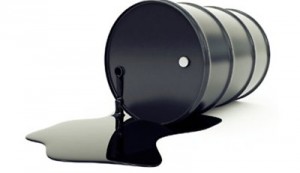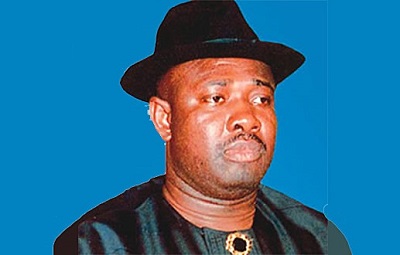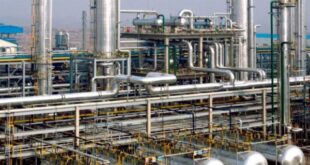 Oil prices rose monday on Middle East supply risks after Saudi Arabia cut diplomatic ties with Iran.
Oil prices rose monday on Middle East supply risks after Saudi Arabia cut diplomatic ties with Iran.
By 1230 GMT, US benchmark West Texas Intermediate (WTI) for delivery in February climbed 30 cents to $37.34 a barrel, while Brent gained as much as 3.3 per cent to $38.50 per barrel, the highest in about three weeks, reported Reuters.

Mike van Dulken, head of research at Accendo Markets, noted that “geopolitical tensions in the Middle East are adding to existing volatility in the price of oil”.
Tensions between major crude producer Iran and its Sunni Arab neighbours reached new heights yesterday as the world’s biggest pumper of oil Saudi Arabia and Gulf allies cut or downgraded diplomatic ties with Tehran in a row over the execution of a Shiite cleric.

Angry exchanges following Saudi Arabia’s execution Saturday of prominent Shiite cleric and activist Sheikh Nimr al-Nimr erupted into a full-blown diplomatic crisis as Riyadh and then ally Bahrain severed their relations with Tehran.

“Oil started the new year on the mend, as… markets reacted to fears that geopolitical tensions in the Middle East may threaten the supply of oil,” said Bernard Aw, market strategist at IG Markets in Singapore.
Despite the rise, Aw said the persistent global crude oversupply would continue to weigh on prices over the longer term.
“Unless we see a convincing drop in oil output from these two nations, and the broader oil-producing community, the supply glut issue will persist, which means oil prices would remain under pressure for a longer period,” he told AFP.
The note of caution from analysts implies that it may be too early for oil exporters, such as Nigeria, to think the upswing will last.
The Organisation of the Petroleum Exporting Countries (OPEC), whose 13 members include Saudi and Iran, decided last month against cutting output levels despite a plunge in oil prices — in a bid to maintain market share faced with competition from North American shale oil output.
Producers including OPEC, Russia and the United States pump between 0.5 and 2.0 million barrels of oil every day in excess of demand.
Meanwhile, in the wake of the execution of Sheikh al-Nimr, Iran has said it is using all diplomatic channels to pursue the release of a prominent Shiite Muslim cleric, Sheikh Ibrahim el-Zakzaky, who was arrested by the Nigerian army last month.
“We have used all those channels to warn them (Nigeria) regarding this issue. So hopefully the government… would adopt wise action given the sensitive situation,” Foreign Ministry spokesman Hoseyn Jaberi-Ansari was quoted by the BBC to have told reporters in the capital, Tehran.
Sheikh el-Zakzaky was injured in a gun battle and arrested after members of the Shiite sect in Nigeria clashed with the army in Zaria, Kaduna State.
He has since been transferred to the custody of the Nigeria Police Force.
Campaign group Human Rights Watch said at least 300 Shiite members were killed and quickly buried in a mass grave after the bloody clash. The Nigerian military has denied the claim.
The military accused the pro-Iranian sect of trying to assassinate army chief, Major-General Tukur Buratai, which it denied.
The pressure mounted by Iran to secure Sheikh el-Zakzaky’s freedom, came just as the Shiite sect in Nigeria condemned Saudi Arabia’s execution of prominent Sheikh al-Nimr, who was kept in Saudi prison since July 2012.
Saudi Arabia said he was put to death, alongside 46 others, after being convicted for what the country’s interior ministry called terrorism offences.
According to a statement issued by the Nigerian sect, “It is known by all and sundry watching the international scene that Sheikh Nimr was a vocal supporter of the mass anti-government protests that erupted in Eastern Province in 2011, where a Shia majority have long complained of marginalisation. This was a figure active on the sensitive Sunni-Shia sectarian fault line that creates tension in the Kingdom and far beyond.”
It stated that the international rights group, Reprieve, called the executions “appalling”, adding at least four of those killed, including Sheikh Nimr, were put to death for offences related to political protest.
“Protests broke out in early 2011 in the oil-rich Eastern Province in the wake of the Arab Spring. Sheikh Nimr’s arrest the following year, during which he was shot, triggered days of protests in which three people were killed.
“Sheikh Nimr is known to have advocated only peaceful demonstrations and eschewed all violent opposition to the government,” it added.
The Nigerian sect condemned in strong terms the execution of the Sheikh, noting that “killing of (an) Ulama of his status who advocated for change in their societies will not augur well for peace and development”.
“We are however not surprised by what the Saudi regime did, because it is known for its poor human rights record. It is known that Saudi Arabia carried out more than 150 executions last year, the highest figure recorded by human rights groups for 20 years.
“Saudi Arabia and other undemocratic, despotic regimes across the globe should know that the truth cannot be silenced by state sponsored terrorism, which is what killing people who call for peaceful change is, like Sheikh Nimr and others around the world,” it said.
The group conveyed its condolences to Muslims all over the world and the Shiite community in Saudi Arabia for the martyrdom of Sheik al-Nimr and all the other Shohada of the Ahl al-Bayt in Saudi Arabia, Yemen, India, Iraq, Pakistan, Iran, Lebanon, Syria, Bahrain, Kuwait, Nigeria and Afghanistan.
It concluded the statement with an excerpt of a letter written by Sheikk al-Nimr to his mother
 MMS PLUS NG – Maritime, Aviation, Business, Oil and Gas News Online Newspaper with coverage in Maritime, Oil and Gas, Aviation, Power and Energy as well as Financial News
MMS PLUS NG – Maritime, Aviation, Business, Oil and Gas News Online Newspaper with coverage in Maritime, Oil and Gas, Aviation, Power and Energy as well as Financial News








